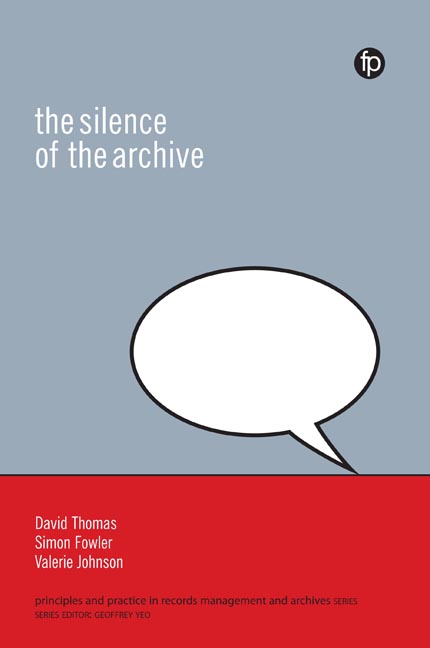Book contents
3 - The digital
Published online by Cambridge University Press: 08 June 2018
Summary
Introduction
In 2005, Professor John Vincent wrote ‘we may be on the verge of a new pre-history, with the era of serious intricate, intimate knowledge of the past merely a fortuitous interlude. Electronic communication means no history’ (Vincent, 2005, 19). Although Vincent's views were not accepted by all historians, they are worth bearing in mind. This chapter will discuss the possibility of silences in the archive in the digital age.
The move to the use of the digital in creating records has been a paradoxical process as far as managing records is concerned and these paradoxes will be explored in this chapter. The first paradox is that, in the digital world, laws designed to create greater openness have led to increased destruction of records. The second paradox is that more records might mean less information and less knowledge. The third paradox is that more records might mean that archives end up with smaller collections.
Traditionally, archivists have been concerned about the potential loss of digital records because of technological obsolescence and the dangers to which records are exposed in the period between when they are created and when they are moved to the archive. More recently, there has been a huge growth in the scale of digital records, which makes normal archival processing, especially selection and review for sensitivity, difficult if not impossible. There seems to be a reluctance to involve users in the selection of digital records, because it has always been so. The large volume of material encourages some institutions to automatically destroy sensitive material in order to avoid the costs and difficulties of responding to Freedom of Information queries. This is understandable, as a simple enquiry could involve thousands of e-mails. Alternatively, government ministers and senior civil servants may simply not document their actions, or may use alternative, unofficial methods of communication, which may mean their files are outside the scope of the archive.
It seems clear that procedures for managing records have not kept pace with changes in technology, particularly where responsibility has moved from traditional records managers to IT professionals. There are very specific problems with some of the newer types of record – e-mails, the internet and digitized material.
- Type
- Chapter
- Information
- The Silence of the Archive , pp. 65 - 100Publisher: FacetPrint publication year: 2017



